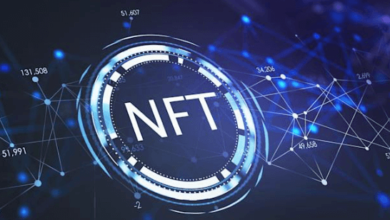What is a metaverse marketplace?

With the rise of non-fungible tokens and their underlying technologies, there has been a significant increase in the value of digital assets. Digital assets such as PNG and JPEG images are being sold for millions of dollars, legacy businesses are now accepting payments via NFTs and cryptos, and brands are seeking new ways to use NFTs.
The NFT market expanded and reached a market capitalization of $23 billion last year as a result of these changes, according to data provided by DappRadar. In metaverse marketplaces where most brands are investing, NFTs are gaining overwhelming popularity due to their integrated value.
All industries have begun to enter the metaverse horizon. These industries enable their audiences to explore their specific products and services in a 3D immersive and real-time parallel universe as part of the metaverse horizon. How can a brand utilize NFTs to enhance the marketing of its products and services in the metaverse? The NFT marketplace offers a solution to this problem.
Metaverse NFT marketplace: what is it?
Metaverse marketplace is a blockchain-based solution enabling users to tokenize their one-of-a-kind digital assets instantly. Moreover, users can seamlessly trade their digital assets in the metaverse space with a decentralized experience. You are likely familiar with established NFT marketplaces, but they operate in the virtual metaverse rather than physical space. Users may trade digital lands, avatars, in-game items, and other digital assets in the metaverse NFT marketplaces.
As a result of integrating their NFT marketplaces into the metaverse projects, companies can expand their service offerings and attract new customers who are currently exploring these possibilities. New and experienced traders seeking decentralization and greater security can get benefit from the metaverse NFT website.
A Metaverse Marketplace’s Key Elements
Creating a metaverse NFT marketplace or entering an existing one requires understanding the basic principles that govern them. Here are the key features necessary for a NFT marketplace to succeed.
1. Decentralization
Metaverse marketplaces are decentralized because they utilize blockchain technology. Consequently, they are not governed by a single authority. Instead, they are run by multiple processors who create, process, and store data on a distributed ledger. Thus, marketplace users can control transactions and ensure confidentiality, privacy, and security.
2. Interoperability
An essential characteristic of the metaverse is its interoperability. It allows users to engage in multiple markets without restriction across different platforms.
3. Tokenization
Tokenization allows users to tokenize their assets, establish individual ownership, and sell them in the metaverse NFT marketplace. This is one of the most attractive aspects of the metaverse NFT marketplace.
4. Peer-to-Peer Transactions
P2P is one of the technologies that form the foundation of blockchain technology. Therefore, the metaverse marketplace will also be constructed using P2P technology. A smart contract safeguards users against cyberattacks by coding and transmitting all transactions.
5. Immersiveness
The unique feature of the metaverse marketplace is its immersive environment. Users can interact with each other and the virtual environment as they do in reality.
Types of Metaverse marketplaces
Here are the significant types of marketplaces:
Metaverse gaming NFT marketplace
As a result of the play-to-earn concept in metaverse games, there continues to be an immense craze among players. Because of this overwhelming popularity, many gaming companies have established their own NFT marketplace to offer users in-game assets, gaming characters, and accessories. With the support of metaverse technology, these marketplaces provide users with realistic and real-time navigation.
Metaverse real estate NFT marketplace
A real estate-based metaverse marketplace regulates buying, selling, and live NFT auctions. Users can bid on a specific property or even a parcel of virtual land and pay for it to gain ownership. It is clear that XANA Metaverse is a suitable example of a metaverse real estate NFT marketplace, with its most compelling features and high price.
Additionally, some real-estate companies offer digital versions of their physical properties that are powered by NFT in the metaverse, enabling avatars to view the properties, inspect them carefully, and purchase them electronically. The buyer acquires ownership of the original property in the real world once the contract has been executed in the metaverse.
Metaverse e-commerce NFT marketplace
In the Metaverse e-commerce NFT marketplace, users can explore products on e-commerce shopping platforms, including clothing, cosmetics, and accessories. Through VR devices, buyers can access such marketplaces and experience the personal product they wish to purchase with their avatars. As a result, their buying experience is rich and realistic, similar to the actual purchasing experience.
Concluding Thoughts
A metaverse and an NFT complement one another, resulting in a greater opportunity for businesses to grow. As a result, they can provide their users with an enhanced experience of exploring the products and services offered in a 3D immersive and realistic environment. Therefore, it is time for enterprises to invest in this futuristic technology to establish high-end NFT marketplaces and metaverses.


